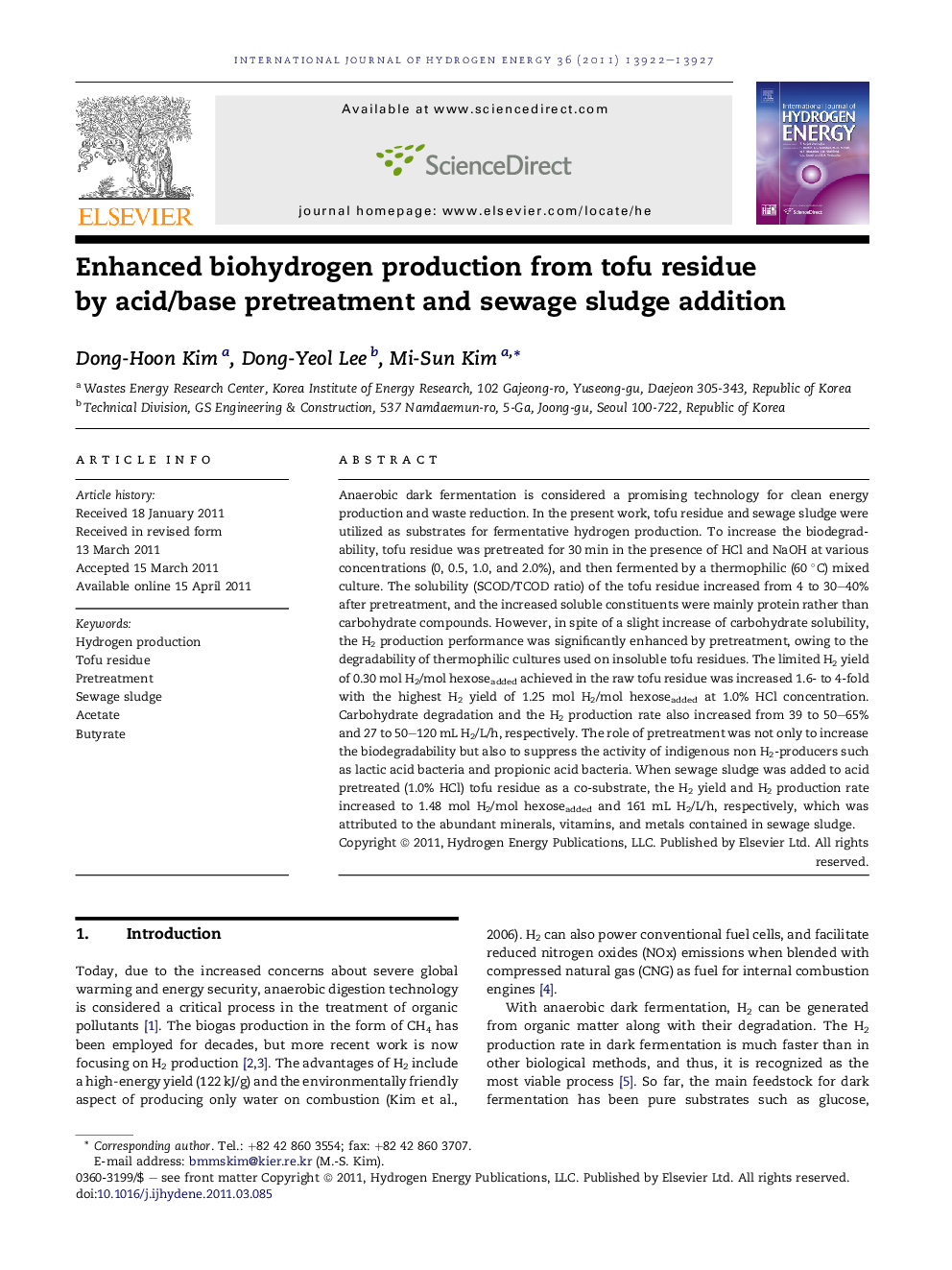| Article ID | Journal | Published Year | Pages | File Type |
|---|---|---|---|---|
| 1278745 | International Journal of Hydrogen Energy | 2011 | 6 Pages |
Anaerobic dark fermentation is considered a promising technology for clean energy production and waste reduction. In the present work, tofu residue and sewage sludge were utilized as substrates for fermentative hydrogen production. To increase the biodegradability, tofu residue was pretreated for 30 min in the presence of HCl and NaOH at various concentrations (0, 0.5, 1.0, and 2.0%), and then fermented by a thermophilic (60 °C) mixed culture. The solubility (SCOD/TCOD ratio) of the tofu residue increased from 4 to 30–40% after pretreatment, and the increased soluble constituents were mainly protein rather than carbohydrate compounds. However, in spite of a slight increase of carbohydrate solubility, the H2 production performance was significantly enhanced by pretreatment, owing to the degradability of thermophilic cultures used on insoluble tofu residues. The limited H2 yield of 0.30 mol H2/mol hexoseadded achieved in the raw tofu residue was increased 1.6- to 4-fold with the highest H2 yield of 1.25 mol H2/mol hexoseadded at 1.0% HCl concentration. Carbohydrate degradation and the H2 production rate also increased from 39 to 50–65% and 27 to 50–120 mL H2/L/h, respectively. The role of pretreatment was not only to increase the biodegradability but also to suppress the activity of indigenous non H2-producers such as lactic acid bacteria and propionic acid bacteria. When sewage sludge was added to acid pretreated (1.0% HCl) tofu residue as a co-substrate, the H2 yield and H2 production rate increased to 1.48 mol H2/mol hexoseadded and 161 mL H2/L/h, respectively, which was attributed to the abundant minerals, vitamins, and metals contained in sewage sludge.
